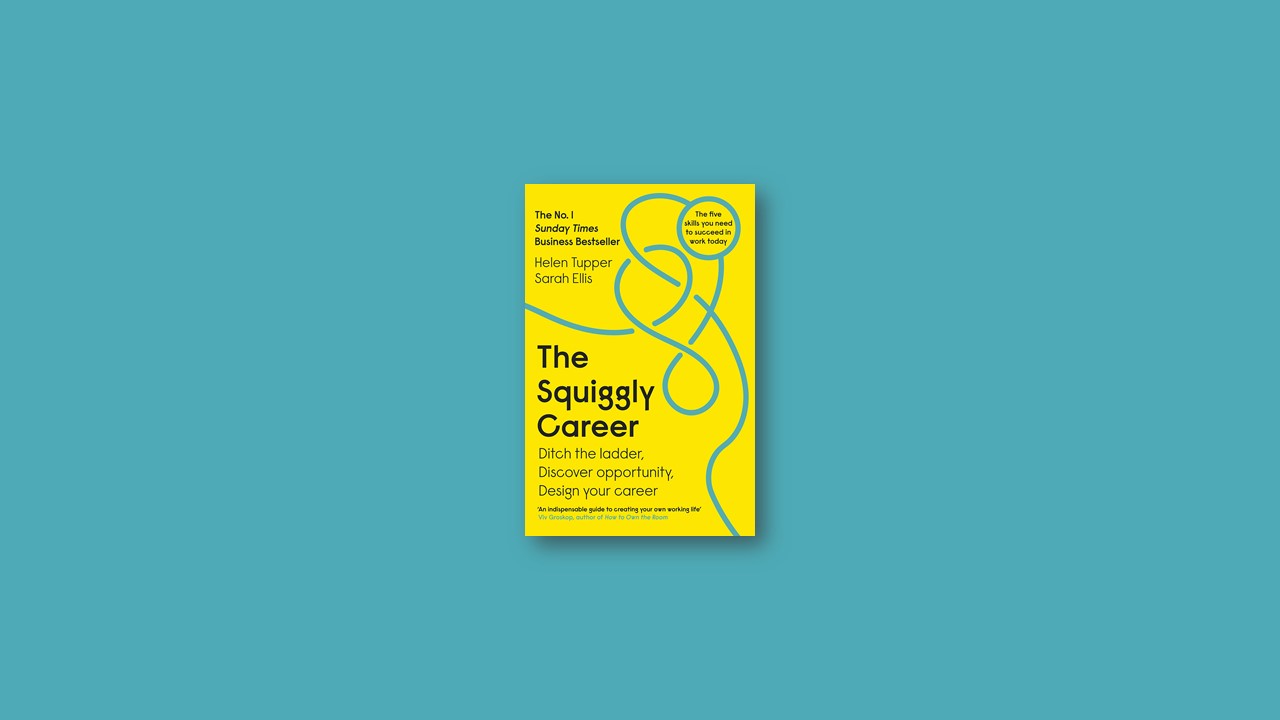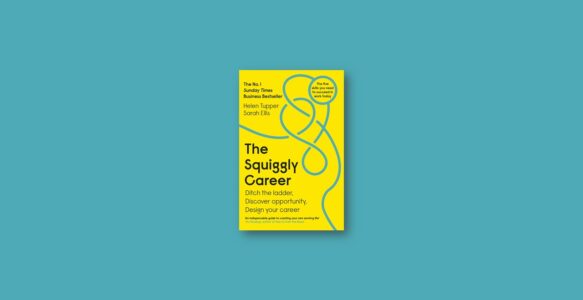Today, we’re living in a world of squiggly careers, where moving frequently and fluidly between roles, industries, locations, and even careers, is becoming the new normal. Squiggly careers can feel stressful and overwhelming, but if you know how to make the most of them, they can be full of opportunity, freedom and purpose.
And to make the most of our increasingly squiggly careers we need to answer some important questions: What am I good at? What do I stand for? What motivates and drives me? Where do I want to go in the future?
Strengths
Spend 80 per cent of your time focused on making your strengths stronger and 20 per cent of your time mitigating any specific weaknesses relevant to your job.
Your strengths are a combination of your natural talents and your learnt experience.
Natural talents are the things that you are good at without being taught. We often take these talents for granted and underestimate their positive impact at work. Ask a family member, friend and work colleague for three words to describe you. Other people can often see our impact more clearly than we can ourselves.
Our learnt strengths are a combination of your whats (the knowledge and expertise you have in your industry and profession) and your hows (the behaviours you bring to work). Ask for strengths-based feedback: ‘Can you tell me when I’ve been at my best this week?’ This will make sure your impact matches your positive intent.
Values
Values are what make you ‘you’. You have around three to five core values. These are your strongest motivators, the things that are ultimately the most important to you.
You only have one set of values and they impact all aspects of your life both at work and at home. Values aren’t up for judgement. No value is better than any other. Defining what your values mean will help you to share them with other people.
Living your values at work is on your to-do list for life. Revisit and review your values and their definitions regularly to see if they still feel right. Likewise, understanding other people’s values builds teams with strong empathy, high trust and creates an environment where everyone feels comfortable being themselves.
Confidence
Confidence is a skill. It can be learnt, practised and improved. Confidence and success go hand in hand. The more successes you have the more confidence you will build.
The three Rs of building a success mindset: Recognize, Record and Run your own race.
Confidence gremlins are the things that hold you back at work – and everyone has them. Work out what your gremlin triggers are by looking for patterns of when your gremlin holds you back.
To overcome your gremlins, test them by taking small actions. Reward yourself for taking actions to test your gremlins.
Networks
Networking is people helping people. Everyone can build a successful network whether you are an introvert or extrovert. The best relationships are built authentically and in a way that feels right for you.
The best networks are built on what you can give without expectation of immediate gain. To identify what you can give to a network, start with your strengths and passions and how these can be useful for other people. In addition, know what role you are playing in a network: consumer, contributor, connector or creator.
Not everyone will say yes to networking requests; don’t be disheartened or take it personally. Developing a successful network takes time, energy and is a continual work in progress
Future Possibilities
The three-stage life of education > work > retirement is being replaced by a multi-stage, multi-transition squiggly career.
- Ditch your career plan in favour of exploring future possibilities. Treat yourself as a work in progress to futureproof your career skillset.
- Use a vision board or personal manifesto to create a compelling and motivating statement of what is important to you in life and your goals for the future.
- People with a high curiosity quotient (CQ) are more able to deal with ambiguity, solve complex problems with novel and simple solutions and deliver better outcomes for their organizations.
- Feedback should be regular, real-time and relevant. On average people need five times more positive than developmental feedback. Use ‘what went well / even better if’ as a simple way to structure feedback.
- Grit is more important than talent as an indicator of success. Grow your grit by being fascinated by what you do, improve each day, contribute to something bigger than yourself and adopt a growth mindset
Favorite Pieces of Career Advice
Find a place to work where you can be yourself and look forward to going to work every day. This takes time and you will probably try a few things before discovering the right fit for you. And once you do find the right culture your attitude is so important. Be enthusiastic, positive and grab every opportunity you can to learn and grow. – Dame Carolyn McCall DBE, CEO, ITV
Trust your gut instinct. Your gut is your internal compass and you must learn to listen to it. You will have people all around you sharing their opinion on how you should be doing things, telling you which way to go. You must take on board their advice and guidance, but ultimately it is your own gut instinct that you should rely on to guide you through not only your career but your life. – Holly Tucker MBE, Founder, notonthehighstreet and Holly & Co
A dear friend and leadership coach once said to me, ‘Be ruthless in your decision and humane in the execution.’ I took this to mean … care about people. No matter what role you end up in … or difficult decisions you have to make, you can treat people with respect. – Anne-Marie McConnon, Chief Marketing Officer, BNY Mellon
Stop asking for permission and prepare to ask for forgiveness instead. Chart your own course and remember that the biggest mistake you can make at work is to believe that the way things are is the way they have to be. Because all it takes to change the rules is for you to prove your new rules. – Sam Conniff Allende, Author, Be More Pirate
It’s better to look back on life and say, ‘I can’t believe I did that’, than to look back and say, ‘I wish I had done that’. Don’t let time pass you by. Don’t spend the rest of your life thinking about why you didn’t do what you can do right now. Live your life. Take risks. – Kanya King CBE, Founder, MOBO
Ask yourself three things: are you learning, earning enough, having fun? If you have two out of three think about how you can get all three. If you’re getting one or zero it’s time to do something different. – Rebecca Crallan MD, Head of Cancer Intelligence, Cancer Research UK
We spend an incredibly large proportion of our lives at work. If you want to live a fulfilled life then your work should be personal – there’s no shame in that. If your relationship with your career doesn’t feel vital or emotional, it’s time to make a switch. – Jack Graham, Founder and CEO, Year Here
A note to self: breathe, access where you are, analyse what you’re doing and smile at how far you’ve come. – Adi Alfa, Presenter, Actress, Writer, Director
Never live the same year twice.’ – Sarah
‘Run your own race.’ – Helen


